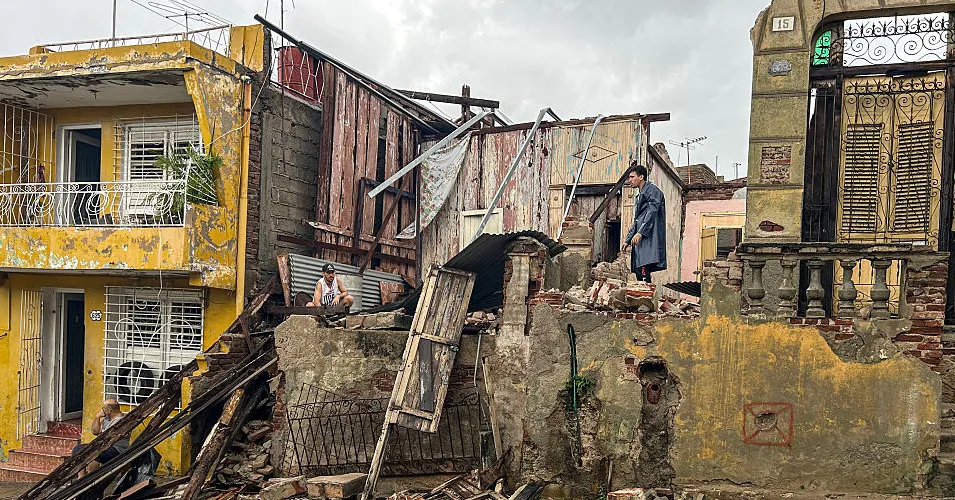This story originally appeared on Inside Climate News and is part of the Climate Desk collaboration.
Fueled by unusually warm waters, Hurricane Melissa this week turned into one of the strongest Atlantic storms ever recorded. Now a new rapid attribution study suggests human-induced climate change made the deadly tropical cyclone four times more likely.
Hurricane Melissa collided with Jamaica on Tuesday, wreaking havoc across the island before tearing through nearby Haiti and Cuba. The storm, which reached Category 5, reserved for the hurricanes with the most powerful winds, has killed at least 40 people across the Caribbean so far. Now weakened to a Category 2, it continues its path toward Bermuda, where landfall is likely on Thursday night, according to the National Hurricane Center.
Early reports of the damage are cataclysmic, particularly in hardest-hit western Jamaica. Winds reaching speeds of 185 miles per hour and torrential rain flattened entire neighborhoods, decimated large swaths of agricultural lands and forced more than 25,000 people—locals and tourists alike—to seek cover in shelters or hotel ballrooms. According to the new attribution study from Imperial College London, climate change ramped up Melissa’s wind speeds by 7 percent, which increased damages by 12 percent.
Losses could add up to tens of billions of dollars, experts say.
The findings echo similar reports released earlier this week on how global warming contributed to the likelihood and severity of Hurricane Melissa. Each of the analyses add to a growing body of research showing how ocean warming from climate change is fueling the conditions necessary for stronger tropical storms.
Hurricane Melissa is “kind of a textbook example of what we expect in terms of how hurricanes respond to a warming climate,” said Brian Soden, a professor of atmospheric sciences at the University of Miami, who was not involved in the recent analyses. “We know that the warming ocean temperatures [are] being driven almost exclusively by increasing greenhouse gases.”
The storm has disrupted every aspect of life in this part of the Caribbean.
“There’s been massive dislocation of services. We have people living in shelters across the country,” Dennis Zulu, United Nations resident coordinator in Jamaica, said in a press conference on Wednesday. “What we are seeing in preliminary assessments is a country that’s been devastated to levels never seen before.”
The Climate Connection
For the rapid attribution study, researchers at Imperial College used the peer-reviewed Imperial College Storm Model, known as IRIS, which has created a database of millions of synthetic tropical cyclone tracks that can help fill in gaps on how storms operate in the real world.
The model essentially runs simulations on the likelihood of a given storm’s wind speed—often the most damaging factor—in a pre-industrial climate versus the current climate. Applying IRIS to Hurricane Melissa is how the researchers determined that human-induced warming supercharged the cyclone’s wind speed by 7 percent.


